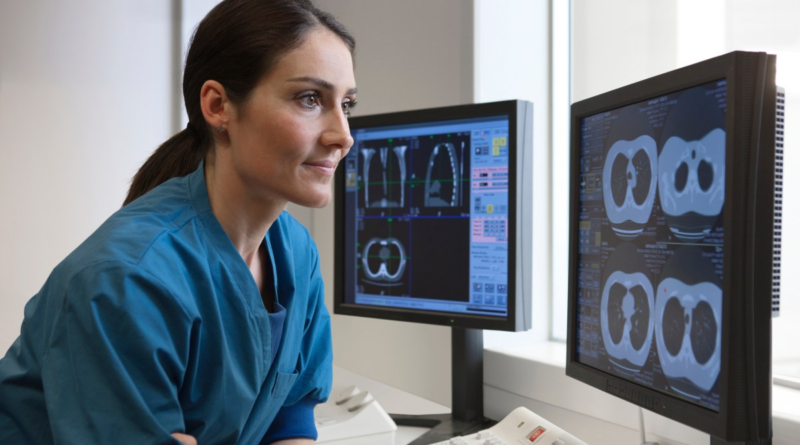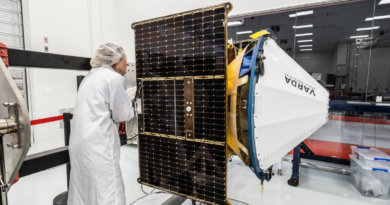CARPL guides healthcare providers through the growing market of radiology AI apps
There’s an acute shortage of radiologists around the world, which means it is harder for medical teams to get imaging studies done. As a result, more than 200 companies have sprung up to create applications that use AI to automate different parts of the radiology process. CARPL, a radiology marketplace that counts Singapore’s government as a client, is focused on making it easier for healthcare providers to access and use those applications.
The San Francisco-based startup announced today it has raised $6 million led by Stellaris Venture Partners. The round also included participation by angel investors from Novo Holdings, Leapfrog PE, Bain & Co., Boston Consulting Group, United HealthGroup and others. CARPL will use the capital to hire in North America and continue building its tech stack.
Companies including AiDoc, Qure.ai. Unit, Avicenna, Gleamer and AZmed are all working on AI-based tech for radiology and have created over 700 FDA approved apps so far, but it’s challenging for healthcare providers to pick the most suitable ones for their needs and then integrate them into their radiology workflows. This means slower adoption, despite the shortage of radiologists.
CARPL uses a DEV-D framework to help radiology teams Discover (D), Explore (E) and Validate (V) apps from its AI marketplace, so they can then Deploy (D) them. So far, it has onboarded more than 50 AI developers with 100 apps, which CARPL says makes it the largest AI marketplace in terms of AI apps offered to customers. Besides the Singapore government, CARPL’s customer base also includes Massachusetts General Hospital, Radiology Partners, University Hospitals, I-MED Radiology, Albert Einstein Hospital and Clinton Health Access Initiative.
The company was founded in 2021 by Dr. Vidur Mahajan, a physician who also holds an MBA from the Wharton School of Business and has over 12 years of experience in the diagnostics industry. CARPL’s leadership team also includes chief medical officer Dr. Vasanth Venugopal, CTO Rohit Takhar and COO Dhruv Sahai.
Before launching CARPL, Dr Mahajan grew revenue 10x to $20 million in 10 years at his family business Mahajan Imaging, a radiology service provider. His father, Dr Harsh Mahajan, a radiologist, helped him conceptualize CARPL while validating and deploying AI at Mahajan Imaging.
Dr Mahajan (junior) tells TechCrunch his experience at his family business entailed authoring research papers and giving presentations, and he published in top journals like The Lancet.
“The more I worked with the top AI companies across the world, the more I realized that AI solutions were being built in niches, and the users of these solutions were having to use multiple AI solutions across different body-part and disease combinations,” he says. For example, there are different AI apps for brain-stroke, chest-tuberculosis, lung-cancer and prostate cancer. Dr Mahajan saw this was stalling adoption of these apps, because healthcare providers had difficulty picking and onboarding apps.
Companies building AI apps need to go through healthcare providers first to test and validate their software before integrating them with user-interfaces and data channels. Performing an integration can cost between $10,000 to $100,000 and take 6 to 18 months. Dr Mahajan says CARPL solves these problems by providing a single user-interface (a universal AI viewer), a single data channel and a single procurement system to providers that not only makes picking AI apps easier, but also faster to validate and deploy.
One use case involves CARPL client Radiology Partners, which performs 50 million radiology tests a year through 3,500 radiologists in the U.S. It was technically challenging and time-consuming for the company to benchmark AI algorithm performance by four vendors. They used CARPL to test the vendors on 20,000 patients, which Dr Mahajan said reduced their pilot time from a year to a few months, and one day for a single vendor.
CARPL is also used by University Hospitals in Cleveland, which is attached to Case Western Reserve University, to build, validate and deploy AI in their clinical practice. X-rays of patients with potential fractures are sent to CARPL and a third party AL algorithm built by AZmed determines whether or not there is actually a feature. This means radiologists can work more efficiently and patents receive care more quickly.
CARPL is post-revenue and monetizes through a model where customers pay for access to its platform to test third party AI algorithms on their own data in a secure environment behind their firewalls. They can also run third party AI algorithms in a clinical deployment setting.
The startup’s competitors are Blackford Analysis, DeepC and Incepto, but Dr Mahajan says CARPL differentiates by being the only platform with validation and monitoring capabilities that integrates with radiologists’ PACS workstations, which they use to analyze images. CARPL’s mission is to make radiologist’s work 10x faster by providing an entire AI ecosystem. It’s starting with radiology because it “has the most vibrant ecosystem of AI apps,” Dr Mahajan says, but plans to expand into other sub-specialities like digital pathology, oncology, cardiology, dermatology, ophthalmology and gastroenterology.
In a statement, Stellaris Venture Partners partner Alok Goyal said, “The volume of imaging scans is steadily growing 9% year-on-year, yet the number of radiologists joining the workforce is only 1.8%. Bridging this demand gap is a crucial challenge for healthcare providers, and we believe AI will be the key. CARPL’s integrated platform, designed for testing, deploying and monitoring radiology AI applications, is poised to empower healthcare providers by seamlessly integrating AI into their clinical workflows.”




